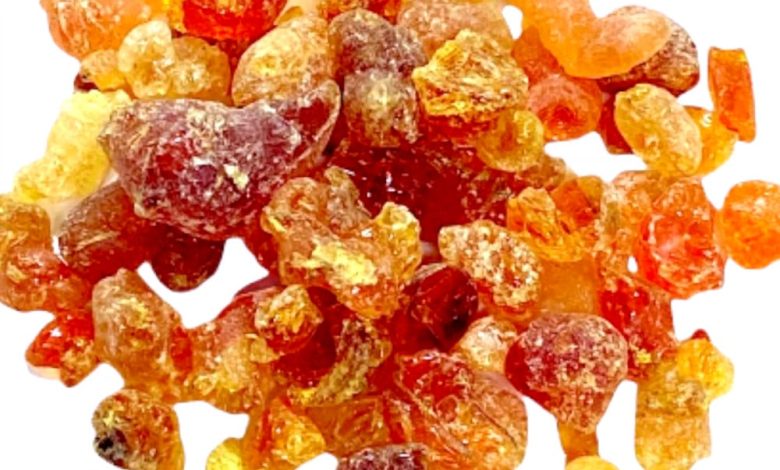Gum Arabic…in Face of War Fires

Report by Nahid Oshi
It is well known that Sudan is unique in the production of Gum Arabic, as it produces between (70 and 80%) of the global production of Gum Arabic. Gum Arabic is produced by acacia and hashab trees, and its production belt covers (13) states, including 5 states in Darfur, and 3 states in Kordufan, the White Nile, the Blue Nile, Sinnar, Gadarif, and part of Kasala state, which all form the
Gum Arabic belt
The presence of Gum Arabic also provides a good environment for the production of food and cash crops such as (peanuts, sesame, hibiscus) and other products that have an impact on food security inside Sudan. They also constitute income-generating cash crops. The presence of the Gum Arabic tree has a direct impact, particularly since the sector supports 80% of the livestock in Sudan and the belt supports about 5 million people
However, the war currently taking place in Sudan has directly affected eight of the Gum Arabic producing states (Kordufan the three states, Darfur the five states). In total, they produce more than 60% of the Gum Arabic production in the country. The former Secretary General of the Gum Arabic Council, a researcher at the Institute for Gum Arabic Research and Desertification Studies at the University of Kordufan, Professor Tariq Al-Sheikh, confirms that the Gum Arabic sector has been affected by the war that has entered its eighth month. He said that this war has left 60% of Gum Arabic production outside the production cycle due to the war impact on eight of the Gum Arabic production states. In addition to the impact of the war on the industrial structure, as 90% of the factories are located in Khartoum, International trade has been affected.
He pointed out the impact of global trade, which depends on Gum Arabic, for many of the food and pharmaceutical industries, and expressed his fear of the increasing phenomenon of smuggling through neighboring countries to France and the major countries.
The means of transportation that transport the product from rural areas to the central and export markets were also affected. There was a disruption in those means, as well as the rural, urban and central markets were affected. There is no longer trading of the Gum Arabic commodity. In addition, financing the production of the commodity is not available because bank financing has become unavailable in most cases. The regions of the western Gum Arabic belt, and even the smart partnerships that some companies used to have with producers, have become outside the scope of direct dealings.
All of them were canceled with negative effects on the supply chain
Despite these direct effects of the war, Sinnar State has achieved high gum production, with the production of hashab gum reaching approximately (20) thousand quintals and acacia gum (80) thousand quintals.
300 forests:
The director of Sinnar state forestry, Ali Sheikh Idris, indicated that the number of forests in the state is estimated at about 300 forests, including public and private forests, Dahra forests, and Nile forests. He said that the state is distinguished by its location on the Gum Arabic belt, according to known latitudes.
Gum Arabic Expert Dr. Issam Siddiq also reassured that the Gum Arabic market will not be affected by the repercussions of the ongoing war. He said in a statement to (Sudan Events) that this war will not affect the market for intermediate gum as an additive and fiber, as not more than 2% of the forest stock is exploited, and these quantities, which do not exceed 50 thousand tons, can be provided from the stock in safe areas, but are affected by a slight increase in prices due to the terrible deterioration in the exchange rate of the Sudanese pound. However, he pointed out that the campaign for the establishment of the major public super company led by producers, gum experts, professions and businessmen to exploit (98%) of the gum forests has been disrupted due to the war and the disruption of the project to classify the gum as natural Prebiotic, which the mafia resisted in this war. The project will of course be delayed for a year or two, and gum will return as a super food for immunity, digestion, and natural excretion.
Challenges of war:
The director of Sinnar Forestry pointed to some of the challenges facing gum production, including the lack of labor availability this year due to the exceptional circumstances that the country is going through and the war conditions in western Sudan, in addition to the random cutting of forest trees.



